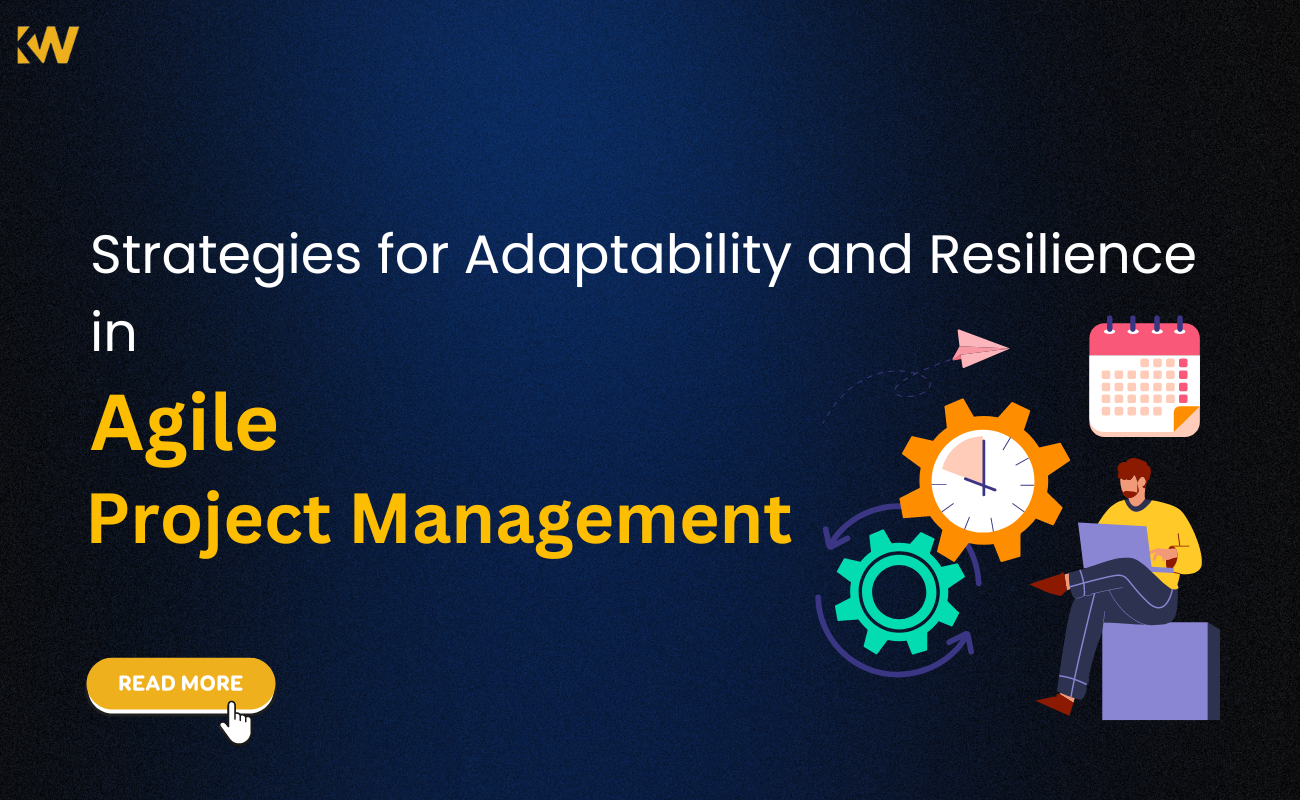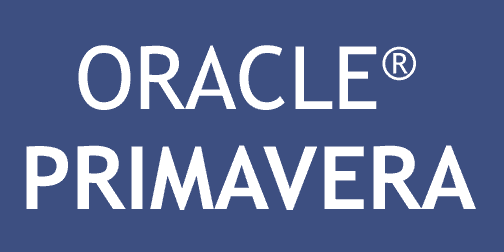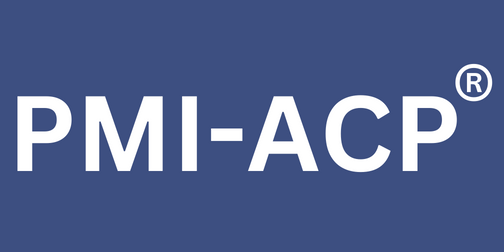
Agile Project Management in a Crisis: Strategies for Adaptability and Resilience
Posted On August 9, 2024 - 11:21 AM
In today's highly connected and fast-paced business environment Project managers have to deal with the responsibility of directing projects in times of crisis. No matter what the scenario is or whether it's an emergency around the globe, a global economic downturn or a natural disaster, the ability to effectively manage projects in the face of uncertainty and change is crucial. This blog provides methods and strategies of agile project managers can employ to deal with crises efficiently and emerge stronger by themselves.
Agile Methodologies for Crisis Management:
When crises occur, traditional approaches to managing projects aren't always effective due to their rigidity or inflexibility. Methods that are agile, and recognized for their ability to adapt, are extremely useful in difficult situations. Implementing agile principles like continuous communication as well as iterative planning and regular feedback loops allows the project's managers to quickly adapt to changing circumstances. By encouraging collaboration and helping teams to make swift decisions, agile methods provide an effective method of dealing with uncertainty.
Prioritizing Risk Management:
-
A well-planned risk control plan is essential in times of crisis. Managers of projects must be alert to the potential risks created and develop elaborate contingency plans to deal with the risk. Retrospectively reviewing risks is vital as the scenario develops.
-
Make sure to communicate risk mitigation strategies clearly to the key stakeholders and ensure clear communication routes. Being vigilant and well-prepared, project managers can lessen the negative effects of unexpected incidents and ensure that the project stays going forward.
Maintaining Effective Communication:
-
A consistent and frequent communication plan is vital during times of crisis. Project managers need to create a well-defined communication plan that includes regular updates to team members of the stakeholders and other stakeholders.
-
The accessible channels of communication foster trust and openness. Being responsive to issues quickly and providing direction assures the plan is in place even when faced with difficulties arising from crises.
Fostering Resilient Team Morale:
-
In times of stress, teams are often afflicted with anxiety and stress. Project managers need to provide support, reassurance and motivation to team members. Establishing an environment that encourages open communication and active listening is essential.
-
Encourage members of the team to express their concerns and offer suggestions to innovate and adapt. Recognize small wins and celebrate them to increase morale and sustain the team's spirit.
Adapting and Refocusing Project Plans:
-
In times of crisis, project management needs to be ready to modify and adjust the plans for projects. Review the project objectives, milestones and deliverables, in light of the current situation.
-
Aid stakeholders in identifying priorities that are changing and modify the objectives of the project to align with them. Methods of managing projects that are agile give the necessary framework to ensure constant adjustments and adaption.
Leveraging Technology and Remote Collaboration:
-
Sometimes, emergencies require remote collaboration and work through virtual networks. Utilizing technological tools and technologies that enable distant collaboration and communication and monitoring of projects is essential.
-
Utilizing software for managing projects and video conference platforms, as well as online tools to collaborate allows the continuous exchange of information and improves effectiveness despite physical limitations.
Five strategies to handle unexpected challenges to your project
1. Plan and prepare for the unforeseeable
-
It's essential to think ahead and implement processes to ensure that if issues occur, they are transferred to the appropriate management level.
-
This helps ensure the decisions are taken quickly the support needed is given by people outside members of the team working on it, and that risks are reduced.
2. Establish clear communication channels
-
A clear communication process assures that all stakeholders are kept informed of how to tackle the problem its possible impacts and the measures being taken to deal with it.
-
This transparency promotes a culture of collaboration between everyone involved and helps build confidence in the project team.
3. Develop a culture of flexibility and agility
-
Utilizing a framework, such as PRINCE2 Agile(r) can assist you to be more able to unexpected problems.
-
The ability to adapt to leadership helps your team to become more resilient and permits them to develop more innovative solutions that can help solve these unexpected situations.
4. Keep calm and focused
-
In times of emergency, it is crucial to keep a calm and collected attitude. When you are calm and composed during these times it will create confidence within your team members and others involved.
-
In addition, this will help facilitate clarity in decision-making and enhance your problem-solving skills.
5. Assess and learn from the lessons of the experiences of others
-
Project managers must evaluate and learn from these situations when they happen since these situations agile practices provide invaluable opportunities to grow and improve.
-
Retrospectively analyzing these events can reveal weak points or areas of vulnerabilities in your processes, and enable you to make changes to address these.
The Role of Resilience in Project Management
Project managers are always around the edges as projects face difficulties at any time. Therefore it is vital to have resilience as a quality to be looking for in the manager of a project. In addition, the company or team should have a plan for resilience prepared for these times. This strategy should include:
-
Risk Management: The management of risk is an essential very first step. When the project the project manager should identify the risks that could be posed and develop an approach to deal with the risks. Strategies for managing risk should be reviewed by project managers as projects progress.
-
Flexibility: Project managers should be able to modify various aspects of a project such as commitment to resources and timeframes to develop a resilient project management strategy.
-
Transparent Communication: Transparent communication between project managers and all stakeholders including team members as well as customers, is crucial. Transparent communication enables team members to share problems as soon as they arise.
-
Learn: One aspect of resilience is the ability to learn. Project managers need to document crises step-by-step and learn from them so that they are prepared in the event of a repeat.
-
Emotional Intelligence: Managers of projects must be emotionally aware to tackle issues with a clear mind and logical thinking. In the event of a disaster, emotional responses can make things more difficult.
-
Continuous Monitoring: The project managers must utilize every tool and device that they have to keep track of the project continuously and be ready in case symptoms of a crisis begin to surface.
Strategies for Identifying and Mitigating Project Risks
The ability to anticipate potential risks and obstacles is an essential ability for any project manager. There are many ways to recognize and limit the risk before it occurs such as:
Writing all possible future scenarios: It is hard indeed, and we all want things to be as smooth as they can However, often, that isn't the situation. Therefore, it's worthwhile taking the time to create all possible scenarios that could be wrong.
Prioritize Risks: It's a good idea to prioritize risks based on their impact. Don't approach each challenge as if it were. Prioritizing risk can help you save time later on. Before you take on the challenge Ask yourself questions such as:
-
Is this project important to your company or client?
-
Does this risk affect the project, your service (service), or the product (service)
-
Does this risk affect the relationship between the customer and the seller?
-
Does the project stop if you put off the response?
Building Resilient Project Teams and Workflows:
To build a durable project team, you must:
-
Make teams with different skill levels
-
The team should be focused on a particular value stream
-
Make sure you emphasize the results
-
Team members can make use of tools to help them manage themselves
-
Inspire self-reflection and empathy in the team.
-
Check on the team and make sure that team members are on the same page.
The agile approach already provides the structure to build an enduring team, but only on the condition that it's properly used. Most organizations today employ agile (with some modifications to fit their requirements) and have the framework to build resilient teams. Therefore, it's the job of the project managers to utilize them.
Adding Resilience to the Project Delivery
There are three methods to increase the resilience of projects:
-
In Process: Resilience in process implies that things have to be accomplished, no matter if conditions change.
-
Redundancy: When working on a task there must be two people with each job so that if one is not available for any reason, another will be able to fill in the gap.
-
Data Accessibility: Always have an offline backup of your data to ensure that when things go wrong and the data is not accessible online, you can be involved in the project. Some time ago some users noticed that their entire data in Google Drive was absent. Google stated that the issue was due to an update and the issue was fixed in the end, but if you were in this position and didn't have an offline backup, you were in somewhat of a bind.
Conclusion:
The project management of projects during moments of crisis demands flexibility and adaptability as well as effective communication. By adopting agile strategies, including risk management, prioritizing and ensuring open communication, increasing team spirit, altering plans for projects and utilizing technologies, project managers can efficiently manage uncertainties and lead their teams to ensure the successful completion and success of projects. When crises occur regardless of the difficulties can provide opportunities for growth and innovation. By accepting these challenges and learning through them, improving their skills from the opposite, project managers can establish themselves as leaders in crisis within their organizations.
FAQs
Q.What is adaptability and resilience in project management?
Answer:Adaptability and resilience is one of the most important principles that guide the way we execute projects. When considered correctly, they improve the ability of teams to bounce back from failures, deliver faster, and adapt to changing conditions during project execution.
Q. How can project managers build resilience in a crisis?
Answer : Developing key qualities for resilient leadership in a crisis involves fostering adaptability, maintaining clear communication, practicing empathy, staying decisive, and remaining calm under pressure. Building a strong support network and continuous learning also enhance resilience and effective crisis management.


















